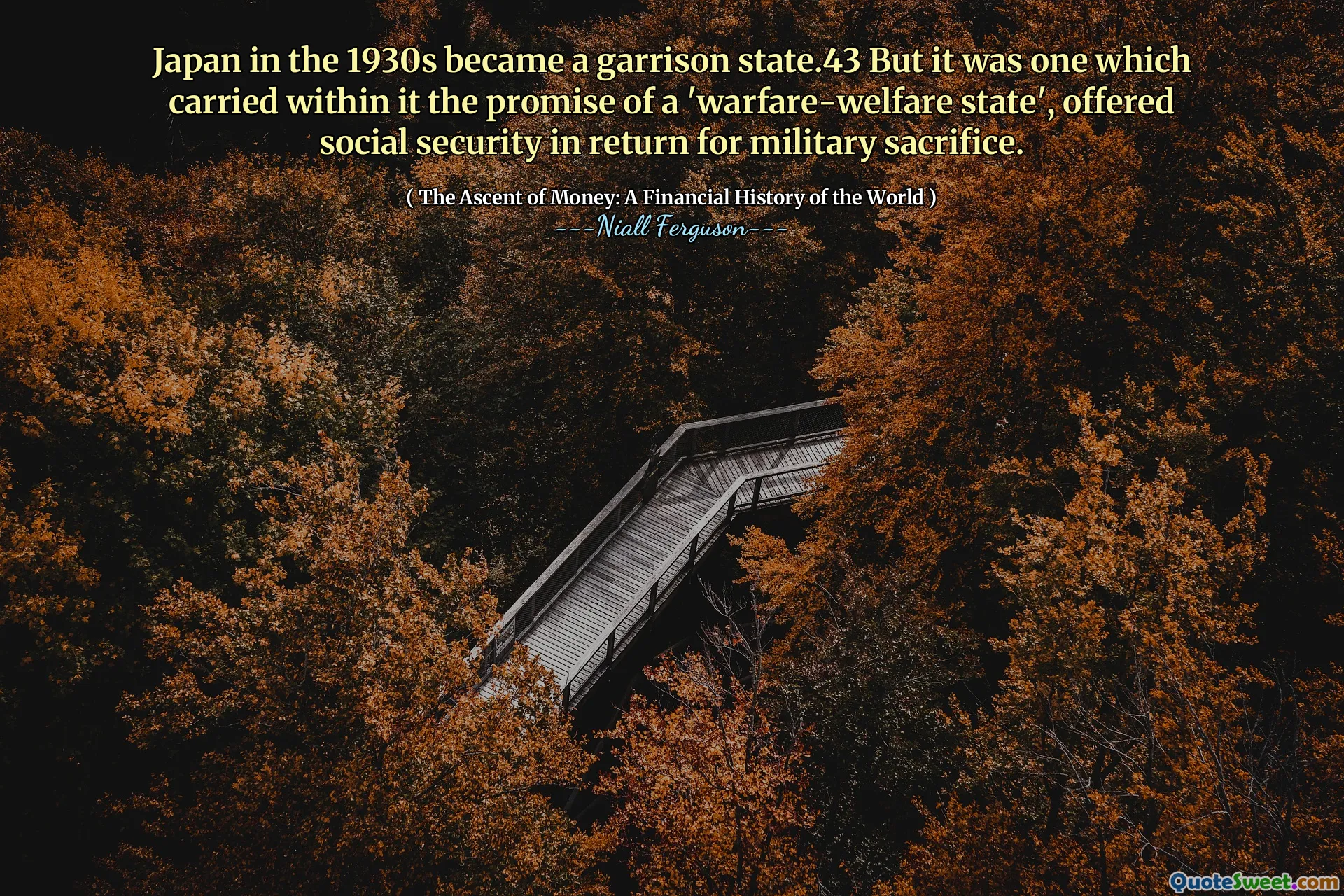
Japan in the 1930s became a garrison state.43 But it was one which carried within it the promise of a 'warfare-welfare state', offered social security in return for military sacrifice.
In the 1930s, Japan transformed into a garrison state, characterized by a focus on military preparedness and national defense. This shift represented a broader societal commitment to support the military, which led to significant changes in the social structure and economic policies of the country.
Despite the militaristic approach, Japan's government promoted the idea of a 'warfare-welfare state,' suggesting that citizens would receive social security benefits in exchange for their sacrifices for the nation. This approach created a unique blend of military and social welfare that shaped the Japanese experience during this tumultuous period.











